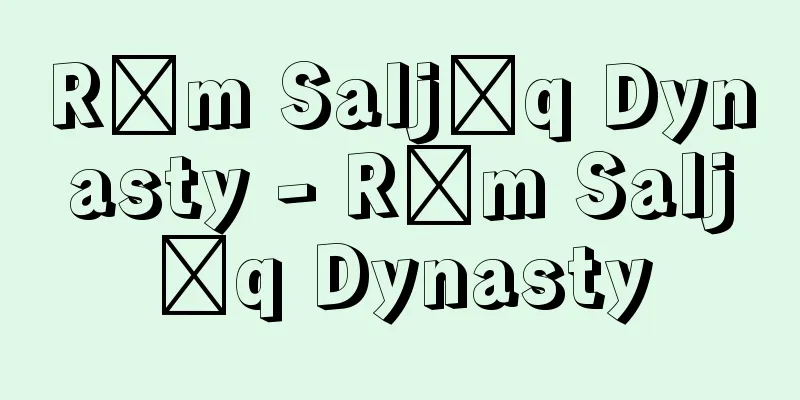Hachiro Arita

|
Foreign Ministry bureaucrat and politician. Born in Sado, Niigata Prefecture. After attending Waseda Middle School and the former First High School, he graduated from the law department of Tokyo Imperial University in 1909 (Meiji 42) and joined the Ministry of Foreign Affairs. After serving in Fengtian (now Shenyang) in China and Honolulu in Hawaii, he became Consul General in Tianjin. In 1927 (Showa 2), he became Director-General of the Asian Affairs Bureau under Tanaka Giichi, who also served as Foreign Minister, and was considered to be the core of the Asian faction within the ministry, replacing the Shidehara Kijuro faction. When the Manchurian Incident broke out in 1931, he worked as an Austrian envoy to international mediation. He served as foreign minister in the cabinets of Hirota Koki, Konoe Fumimaro in the first cabinet, Hiranuma Kiichiro, and Yonai Mitsumasa, and while he supported the Anti-Comintern Pact (1936) he opposed the formation of a military alliance with the United States and Britain, and sought to advance on the continent in cooperation with the United States and Britain. After Japan lost the war, he was banned from holding public office. After being lifted, he was elected to the House of Representatives in 1953 (Showa 28) and joined the Socialist Party. He ran in the Tokyo gubernatorial elections in 1955 and 1959 as a unified progressive candidate, but was defeated. He died on March 4, 1965. He is famous for the case in 1961 when he sued Mishima Yukio for violating his privacy over his novel Utage no Ato (After the Banquet). [Yuji Odabe] "The Life of Hachiro Arita - A Man Who Lived by His Convictions" by Teijiro Yamamoto (1988, Kokodo Bookstore) [Reference] |Source: Shogakukan Encyclopedia Nipponica About Encyclopedia Nipponica Information | Legend |
|
外務官僚、政治家。新潟県佐渡生まれ。早稲田(わせだ)中学、旧制第一高等学校を経て、1909年(明治42)東京帝国大学法科を卒業、外務省に入る。中国の奉天(ほうてん)(現瀋陽(しんよう))、ハワイのホノルルなど在勤後、天津(てんしん)総領事。1927年(昭和2)田中義一兼任外相のもとでアジア局長となり、幣原喜重郎(しではらきじゅうろう)派にかわる省内アジア派の中核とみなされる。1931年満州事変勃発(ぼっぱつ)に際しては、オーストリア公使として国際調停に尽力。広田弘毅(ひろたこうき)、第一次近衛文麿(このえふみまろ)、平沼騏一郎(ひらぬまきいちろう)、米内光政(よないみつまさ)各内閣の外相を務め、日独防共協定(1936)に賛成しつつも米英対象の軍事同盟化に反対するなど、米英との協調による大陸進出を図った。敗戦後、公職追放。解除後1953年(昭和28)衆議院議員に当選し、社会党に入党。1955年、1959年の東京都知事選に革新統一候補として出馬、落選。昭和40年3月4日死去。1961年三島由紀夫の小説『宴(うたげ)のあと』をプライバシー侵害と訴えた事件は有名。 [小田部雄次] 『山本悌二郎著『有田八郎の生涯──信念に生きた人』(1988・考古堂書店)』 [参照項目] |出典 小学館 日本大百科全書(ニッポニカ)日本大百科全書(ニッポニカ)について 情報 | 凡例 |
>>: Arita-Craigie Talks - Arita-Craigie Talks
Recommend
Subodhini (English spelling)
...He later married and had a son, Viṭṭhalanātha,...
Gangsa - Gangsa (English spelling)
A percussion instrument in Southeast Asia. The wo...
Ueda Silver Mine
...occupies the valley of the Sari River, a tribu...
Koshiro Fujita
Year of death: 4th February 1865 (1st March 1865) ...
Kanko Dance - Kanko Dance
Also written as katsuko-odori. A type of elegant d...
Commoner - Heimin
In 1869 (Meiji 2), when the new Meiji government ...
Salt wind damage - Enpu gargle
Damage caused by salty air currents flowing in fro...
Iruma Village
...A city in southern Saitama Prefecture. It stra...
Shoup, Carl Summer
Born October 26, 1902 in San Jose, California [Die...
Ieshima Shrine
A shrine located on Ieshima Island in the Seto Inl...
wazun
...This rhythmic form is called uṣūl. The words w...
Dong Dau (English spelling)
…However, this cultural name, which encompasses a...
Arbuthnot, J.
…used as a nickname for a British national or a t...
Shigeharu Matsumoto
A journalist from the Showa period. Born in Dojim...
Itoga Village
...A city located at the mouth of the Arida River...
![Imperial Palace [city] - Gose](/upload/images/67cb94f63e36e.webp)








